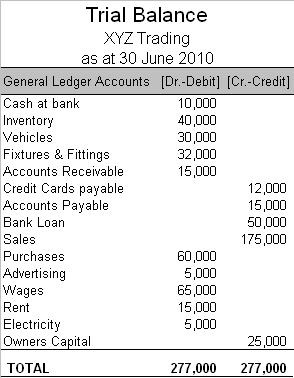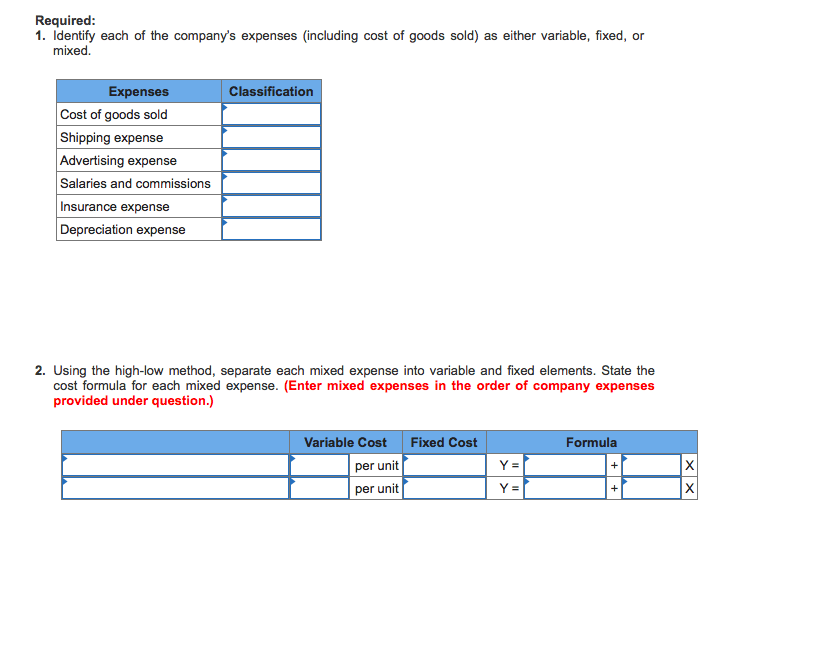
If you find your mental wellness slipping because you’ve taken on more hours at work, then it’s worth limiting those hours. An indicator that working overtime isn’t right for you is if your relationships start to fail or grow distant. These are all signs that working overtime isn’t going to help you reach your financial goals alone. Overtime can be worth it if you’re trying to impress an employer or advance further in your career. This can be a risky move, however, as it can tell your employer that you’re willing to work more hours. A final reason overtime may be worth it is that you’re trying to advance your career.
BambooHR provides a one stop shop to manage data, hire talent, run payroll, and help employees thrive. Overtime rules are fairly straightforward if you stay in touch with your state DOL to ensure that you are properly compensating your employees. The basic overtime formula is (Hourly Rate) × (Overtime Multiplier) × (Number of Overtime Hours worked in a particular week). “When Is Overtime Due?”
Information about overtime from the elaws FLSA Advisor. According to the Fair Work Australia (1) an employer can request that an employee works reasonable overtime. The National Employment Standards (NES), and the Fair Work Act 2009 (Cth), both of which address what constitutes reasonable overtime, covers most employees.
- They must be treated as a salaried employee, and must be paid in set portions, at set intervals.
- The calculation method varies depending on if the bonus or commission payment is allocated by the workweek or some other frequency, e.g., monthly, quarterly, annually.
- It may begin on any day of the week and at any hour of the day and is not impacted by an employee’s pay frequency, e.g., bi-weekly, semi-monthly, monthly.
- Not only will they earn a bit more money, but the amount of money per hour is also increased.
- When it comes to deciding whether working overtime is worth the risk of taking on more taxes or not, you may be unsure how the math works.
Time off in lieu (TOIL),[1] compensatory time, or comp time is a type of work schedule arrangement that allows (or requires) workers to take time off instead of, or in addition to, receiving overtime pay. A worker may receive overtime pay plus equal time off for each hour worked on certain agreed days, such as public holidays. Federal overtime laws are based on a 40-hour workweek, but some states calculate overtime by the workday. In states that calculate overtime per workday, employers must apply the applicable overtime rate to each hour beyond what’s considered a regular workday, e.g., eight hours. The overtime rate must be at least 1.5 times the amount of your hourly pay rate. Your employer must pay you at the overtime rate for the extra hours you worked.
How to use overtime in a sentence
This might result in them advancing your career but also increasing your hours past the point you feel comfortable working. Most importantly, it won’t take away from the number of hours in which you sleep. For example, if most of your waking hours are for working, then you don’t have a lot of balance.
On August 23, 2004, President George W. Bush and the Department of Labor proposed changes to regulations governing implementation of the law. In particular, the new rules would have allowed more companies to offer flextime to their workers instead of overtime. The definition of exempt employees (ineligible for overtime) is regularly tested in the courts. A recent case is Encino Motorcars v. Navarro, which addresses the question of whether automobile dealer service advisors are eligible for overtime.
- Other exempt jobs are hourly jobs, jobs in transportation and delivery, sales, investments, and computer-related jobs.
- Or you might find our budget calculator, especially when you plan to monitor or track your expenses.
- Different workweeks may be established for different employees or groups of employees.
Note that certain states have different methods for calculating the regular rate of pay for nonexempt employees who are paid on a salary basis. A salary is intended to cover straight-time pay for a predetermined number of hours worked during the workweek. Under federal law, to calculate a nonexempt employee’s regular rate of pay, divide the weekly salary by the total number of hours worked. Most national countries have overtime labour laws designed to dissuade or prevent employers from forcing their employees to work excessively long hours (such as the situation in the textile mills in the 1920s). One common approach to regulating overtime is to require employers to pay workers at a higher hourly rate for overtime work. Companies may choose to pay workers higher overtime pay even if not obliged to do so by law, particularly if they believe that they face a backward bending supply curve of labour.
Is overtime calculated by day or week?
To calculate hourly overtime rate, multiply normal rate of pay by the company’s overtime rate. To find total overtime wages, simply multiply the amount of overtime hours worked by the calculated rate of overtime. Include any applicable special rate supplement or locality payment in the “total remuneration” and “straight time rate of pay” when What is overtime computing overtime pay under the FLSA. Compute the “hourly regular rate of pay” by dividing the “total remuneration” paid to an employee in the workweek by the number of hours in the workweek for which such compensation is paid. They must be paid for all hours worked, regardless of whose idea it was to have the employee work extra hours.
Even if an individual works two extra hours of overtime a week, that could add up to an amount that could help them slowly chip away at their debt. A few companies also choose to pay twice your hourly rate (or double-time) if you work overtime. Figuring out how much tax you owe on your overtime hours largely depends on your standard income and the number of overtime hours that you work. An employer may not retaliate[8] against an employee for filing a complaint or instituting a proceeding based on the FLSA.
Is overtime after 8 hours or 40 hours?
Note that certain states have their own methods for calculating the regular rate of pay for nonexempt employees who are paid a flat sum bonus. FLSA exempt employees, as defined in 5 U.S.C. 5541(2), who work full-time, part-time, or intermittent tours of duty are eligible for title 5 overtime pay. Employees in senior-level (SL) and scientific or professional (ST) positions who are paid under 5 U.S.C. 5376 are not excluded from the definition of “employee” in 5 U.S.C. 5541(2). However, some employers choose to use a higher rate (e.g., twice the regular hourly rate) or choose to start calculating overtime rates after 36 hours of work rather than after 40 hours per workweek. Overtime payments made to nonexempt employees are a type of payroll record and, thus, must be retained for at least three years in accordance with the FLSA. Additionally, the timesheets or other documents that show how the wages were calculated have to be saved for at least two years.
These articles and related content is not a substitute for the guidance of a lawyer (and especially for questions related to GDPR), tax, or compliance professional. When in doubt, please consult your lawyer tax, or compliance professional for counsel. Sage makes no representations or warranties of any kind, express or implied, about the completeness or accuracy of this article and related content. That said, if you work a lot of overtime or you’re already on the fringe of a tax bracket, then it may push you into another tax bracket.
Sports & Health Calculators
There are two options for calculating overtime pay for salaried employees. The state of California’s overtime laws differ from federal overtime laws in many respects, and they involve overlapping statutes, regulations, and precedents that govern the compensation of employees in California. Classes of workers who are exempt from the regulation include certain types of administrative, professional, and executive employees.
Train drivers announce new week-long overtime ban in England – The Guardian
Train drivers announce new week-long overtime ban in England.
Posted: Mon, 24 Jul 2023 07:00:00 GMT [source]
To qualify as an administrative, professional, or executive employee and therefore not be entitled to overtime, three tests must be passed based on salary basis, duties, and salary level. There are many other classes of workers who may be exempt including outside salespeople, certain agricultural employees, certain live-in employees, and certain transportation employees. Employees can neither waive their FLSA protections nor abridge them by contract.
There’s a reason the government limited most businesses to operating in 48-hour workweeks. Attempting to work overtime isn’t worth it if you have a habit of overspending. Taking on extra hours won’t cause you to miss out on too much time with your family. If you’re someone who has an interest in investing but doesn’t like the idea of risking your standard income, then working overtime may also be worth it. Managing employees, time tracking, overtime, and time-off data in disparate systems is complicated.

Their requirements fit within the strategic planning framework for the organization. “Is Extra Pay Required For Weekend Or Night Work?”
Additional information about overtime pay from the elaws FLSA Advisor. Overtime does not receive a different tax rate than standard working hours. Working overtime isn’t worth it if you’re not seeing any progress towards your financial goals. One reason working overtime isn’t worth it is that you find that you’re not making any actual financial progress. You can also add up your overtime hours to determine how much money to want to risk in investment.
Overtime pay provided under title 5, United States Code, is pay for hours of work officially ordered or approved in excess of 8 hours in a day or 40 hours in an administrative workweek. Depending on the job type, the number of regular working hours might be determined by the best practices of a profession (based on the trade experience), agreements between sides, or legislation. Whatever it is, it has to fulfill national or local labor law regulations. In the United States, employers that require or allow their workers to work overtime are usually required to pay a premium rate of at least time and a half. Most workers have a fixed number of hours they work each week in their employment contract. Sometimes, they may have to or volunteer to work more than their contract requires.

In such cases, employers must use the blended rate or weighted average of all rates paid in order to calculate the overtime premium due for hours worked over 40 in the workweek. Note that the FLSA has an exception to this rule that allows employer to pay overtime via the “rate in effect.” Most states, however, do not permit this method. Overtime refers to additional pay for hours worked beyond the standard 40-hour workweek (i.e., seven consecutive 24-hour periods). Department of Labor, nonexempt employees who earn less than 35,568 dollars annually must receive overtime pay. The federal overtime provisions are contained in the Fair Labor Standards Act (FLSA).
Here are 12 Columbus-area high school field hockey players to … – The Columbus Dispatch
Here are 12 Columbus-area high school field hockey players to ….
Posted: Tue, 22 Aug 2023 10:00:29 GMT [source]
Overtime refers to the length of time an employee works on top of their normal working week. Extra pay for working weekends or nights is a matter of agreement between the employer and the employee (or the employee’s representative). The FLSA does not require extra pay for weekend or night work or double time pay. The FLSA, with some exceptions, requires bonus payments to be included as part of an employee’s regular rate of pay in computing overtime. Additionally, what is considered a workweek may be defined by the employer as any consecutive seven days, with each day consisting of a 24 hour time period. While most businesses operate on a calendar week, if a business wants to run Wednesday to Tuesday for their pay period, they can.
This is also why you need to exercise caution in any situation where you may have an hourly employee working remotely. They still need to record all hours worked and receive overtime pay for the hours worked in excess of the legal maximum. Our overtime calculator is the perfect tool to help you see how much money you will earn in exchange for those extra hours at work. Fill in the information about how much your hourly rate is and the calculator will do all the rest. It will show you the rate of overtime and the total pay you can expect. It can also give you an annual wage, taking your overtime into account.
Your article helped me a lot, is there any more related content? Thanks!